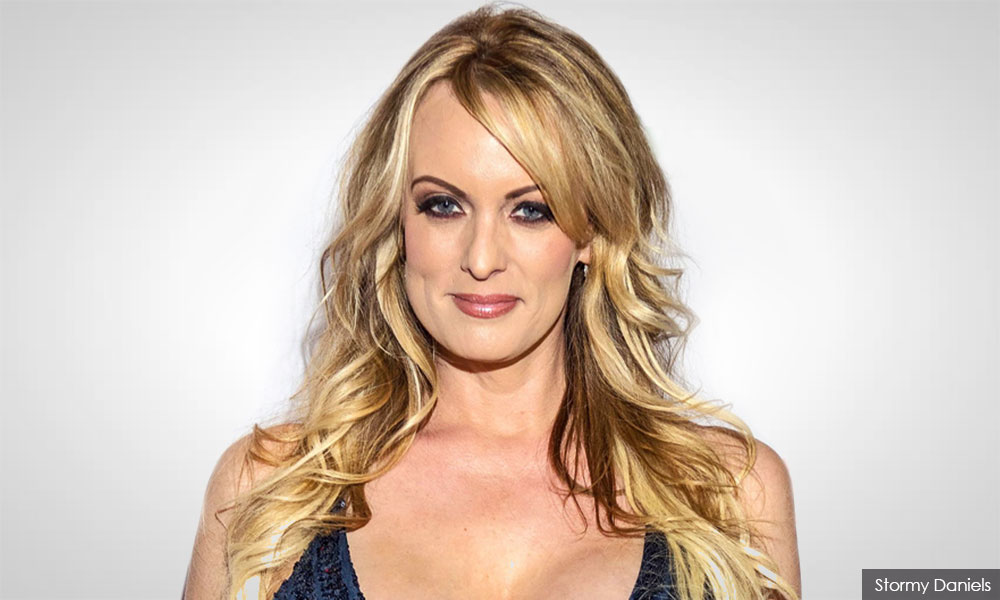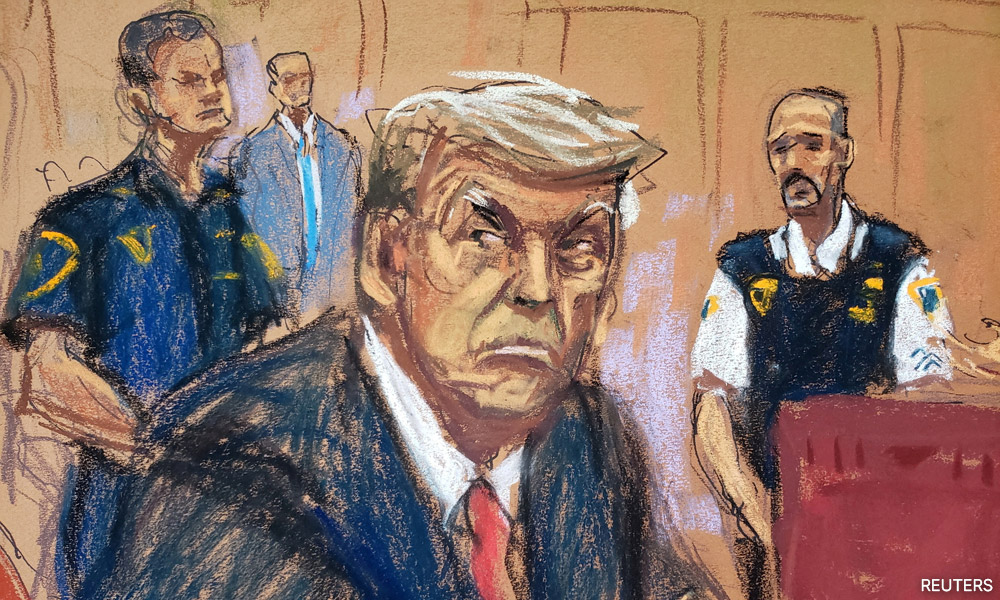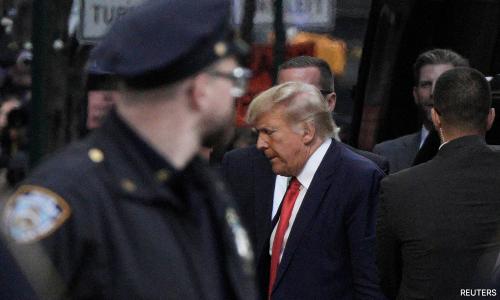ANALYSIS | To convict Trump on hush money charges, prosecutors must...
ANALYSIS | For prosecutors to win their unprecedented case against Donald Trump unveiled on Tuesday, they must meet the heavy burden of proving that the former US president knowingly tried to cover up a crime by hiding a hush money payment.
It's a question of intent, legal experts said.
Manhattan District Attorney Alvin Bragg said that Trump made false records in his family real estate company's books to conceal that he reimbursed his personal lawyer Michael Cohen for a US$130,000 hush money payment before the 2016 election. The payment to porn star Stormy Daniels was part of a wider "catch-and-kill" scheme to suppress damaging news stories about Trump, prosecutors said.
Prosecutors will need to go through a two-step process of proving that Trump intended to not only falsify business records but did so in furtherance of another crime.
"There's actually two levels of intent that have to be proven," said Anna Cominsky, a professor at New York Law School. "First, they have to prove an intent to defraud by making a false business record. Then they have to prove an intent to defraud, including an intent to commit or conceal another crime."
Falsification of business records on its own is a misdemeanour under New York law, but prosecutors elevated the charges to felonies by alleging they were tied to other crimes. The 34-count indictment does not list the other crimes, but Bragg told reporters Trump falsified records as part of a scheme to violate state and federal election laws, as well as state tax laws.

Trump's lawyers have denied he falsified any records. They may also argue Trump's intent in paying Daniels was not to help his presidential campaign but to quash an unflattering story, which is not illegal.
The case marks the first time a former president has been criminally charged, and Trump's ongoing campaign to retake the presidency in 2024 has heaped additional scrutiny onto the case. Trump and his Republican allies claim the prosecution is politically motivated.
Trump pleaded not guilty to the charges and denies having an affair with Daniels. His lawyers have said there were no false records entered into the Trump Organization's books, and that they will seek to get the charges dismissed before the case reaches trial.
Backed by electronic communication records
Proving a defendant intended to commit a crime is a common challenge for prosecutors in white-collar cases. Often, they use contemporaneous emails and text messages to show the defendant knew what they were doing was illegal. They also often rely on testimony from witnesses involved in or close to the scheme.
Bragg told reporters that electronic communication records backed up the case, although Trump himself has been widely reported not to have used text messages or emails until recently. A statement of facts accompanying the indictment cites meetings and phone calls with Cohen, Trump's former personal lawyer, indicating his testimony will be central to proving Trump's intent.
Cohen, who testified twice before the grand jury, has said Trump directed him to make and disguise the payments. But he pleaded guilty to lying to Congress and violating election law with the Daniels payment. Trump's lawyers will use this to attack his credibility.
"You have to prove that Trump himself did that or caused that to be done. So you're going to have to believe the witnesses' accounts," said Sarah Krissoff, a former federal prosecutor and partner at Day Pitney. "Here, they have some narrators, but the narrators have a lot of baggage."
Cohen said in a text message that the "ongoing and continuous attacks" on his credibility would have little impact on the case.
Prosecutors' statement of facts provides some hints as to how they might back up Cohen's testimony. It describes a meeting in Trump Tower shortly after Trump launched his presidential campaign in 2015 in which Trump, Cohen, and the chief executive of American Media Inc (AMI) discussed a plan to suppress negative news stories.

Daniels in October 2016 sought to sell her story about her sexual encounter with Trump to AMI, which owns the National Enquirer tabloid. AMI then alerted Cohen, who negotiated the hush money deal with Daniels' lawyer.
AMI's CEO, David Pecker, also appeared before the grand jury that indicted Trump. If he testifies at trial and corroborates Cohen's account, it could help the prosecutors' case.
The statement of facts also references former Trump Organization chief financial officer Allen Weisselberg, who pleaded guilty to tax fraud and other crimes last year and testified against the Trump Organization, which was convicted of orchestrating a 15-year tax fraud scheme.
While it is unclear if Weisselberg would turn on Trump, his testimony could help prosecutors corroborate their evidence.
Cohen and a lawyer for Pecker did not immediately respond to requests for comment Wednesday.
Prosecutors have the burden of proof, and Trump does not need to offer his own explanation of the payments to prevail. But some legal experts said the reasonable inferences point to Trump purposefully falsifying records in order to break other laws.
"To me, it's straightforward criminal law," said Bennett Gershman, a Pace University law professor and former prosecutor. "You've got the act, you've got the consequences and you've got the culpable mental state. I don't know how he could say he didn't intend to do it."
- Reuters
RM12.50 / month
- Unlimited access to award-winning journalism
- Comment and share your opinions on all our articles
- Gift interesting stories to your friends
- Tax deductable

